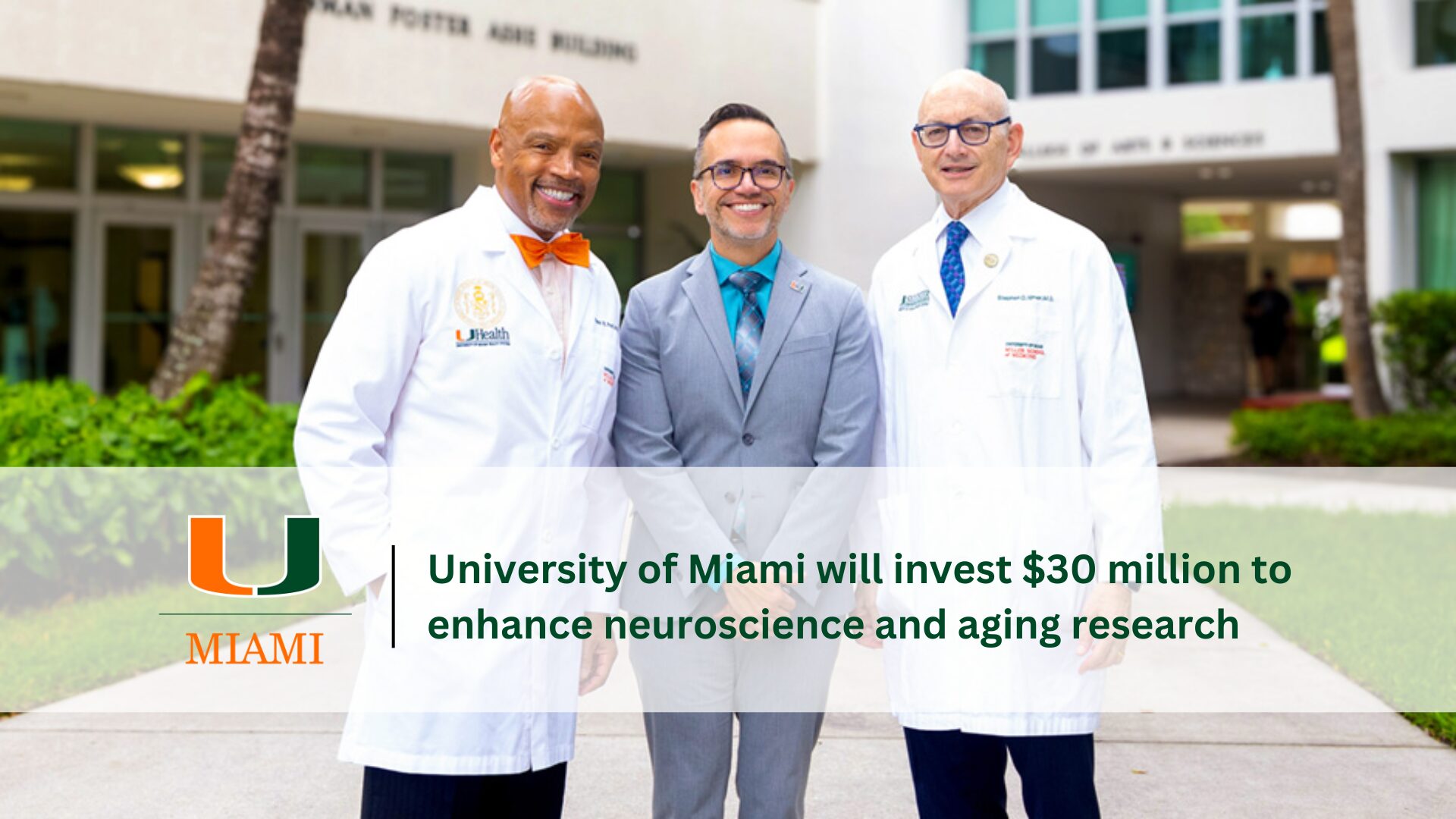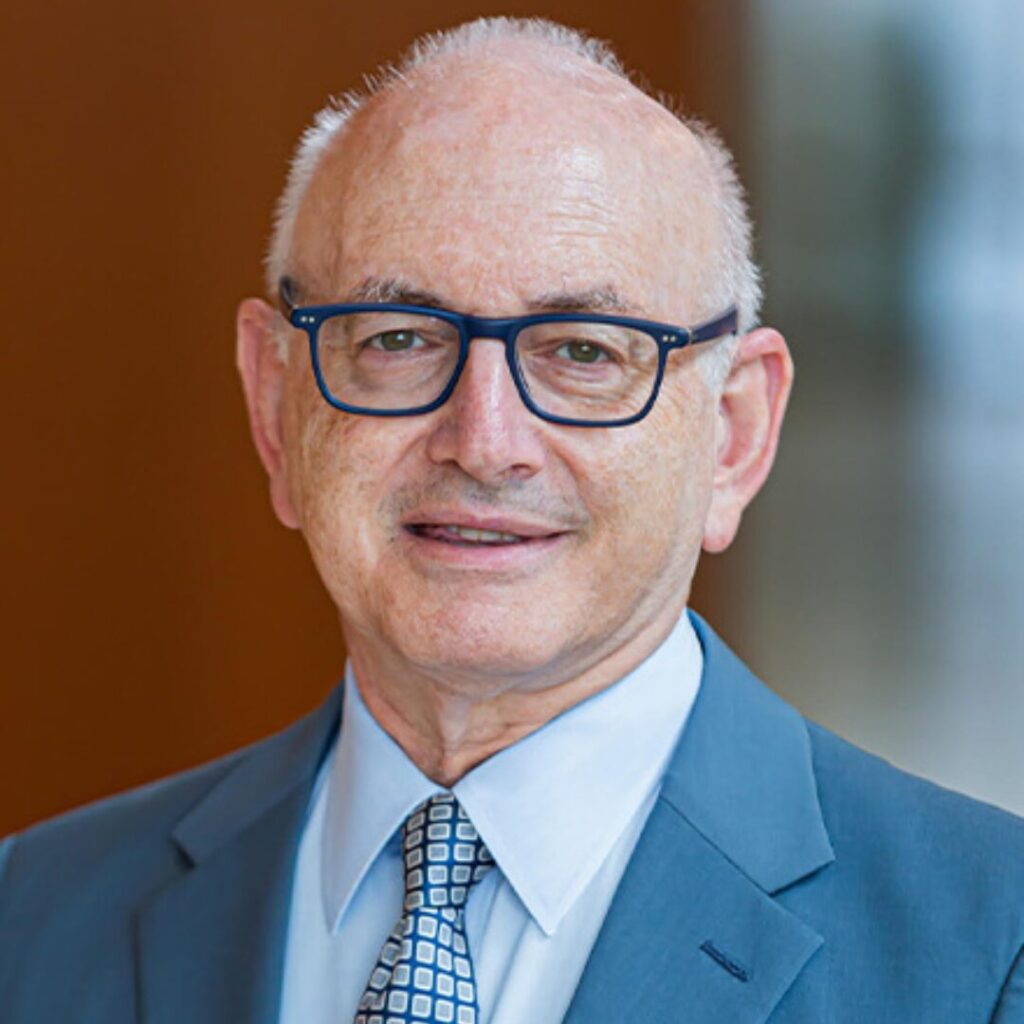 The University of Miami (UM) has announced a $30 million commitment to advancing basic science research in neuroscience and aging. This investment aims to address age-related and neurodegenerative diseases, reinforcing UM’s role as a leading research institution focused on improving public health outcomes.
The University of Miami (UM) has announced a $30 million commitment to advancing basic science research in neuroscience and aging. This investment aims to address age-related and neurodegenerative diseases, reinforcing UM’s role as a leading research institution focused on improving public health outcomes.
UM’s funding will support the establishment of a computational biology program at the Leonard M. Miller School of Medicine and foster collaboration across departments, including Psychology, the Frost Institute for Chemistry and Molecular Science, and the Frost Institute for Data Science and Computing. This initiative aims to create an interdisciplinary approach that drives innovation across multiple fields.
According to UM President Joe Echevarria, this initiative is central to UM’s mission. “Our focus is on delivering world-class education, research, and patient care,” he noted, adding that the investment would benefit students, patients, and the wider community.
Basic science research is the foundation for medical breakthroughs, exploring fundamental biological processes that underlie health and disease. Unlike translational medicine, which applies discoveries to clinical settings, basic science dives into cellular and molecular levels, aiming to generate foundational insights that could one day lead to transformative healthcare solutions. This initiative underscores UM’s commitment to discovery in areas with high potential impact, including Alzheimer’s, Parkinson’s, and other age-related diseases.
A key focus of the initiative is computational biology, a field that uses advanced computing to model biological systems and better understand complex diseases. The discipline, a funding priority for the National Institutes of Health (NIH), allows scientists to simulate biological processes at a molecular level, aiding in drug discovery and the development of predictive models for disease. This research can provide the groundwork for personalized treatments in neuroscience and aging, making UM’s investment particularly forward-looking.
Dr. Henri Ford, dean and chief academic officer of the Miller School of Medicine, highlighted Miami’s strategic advantage for research. “Our location at the gateway to Latin America and the Caribbean, coupled with our diverse local population, offers an unparalleled opportunity to develop interventions applicable to a wide range of people,” he said, underscoring the potential of UM’s research to serve diverse communities.
This $30 million investment reflects UM’s mission to lead in academic excellence and healthcare innovation. Dr. Ford sees this initiative as a pathway to attracting clinical trial partnerships and private funding that will benefit both UM and the broader community. “The benefits of this investment are unlimited,” he said. “With luminaries at the helm, we will develop robust programs that initiate discoveries.”
Executive dean for research at the Miller School and director of the Sylvester Comprehensive Cancer Center, Dr. Stephen Nimer, emphasized that the initiative is expected to attract leading researchers. “This investment in basic sciences will elevate our institution, promoting team science and fundamental discoveries that can someday improve the health of our community,” he noted.
In addition to recruiting renowned scientists, the initiative will provide students and early-career researchers with hands-on experience in cutting-edge fields, preparing the next generation to advance science and medicine. Focusing on neuroscience and aging, UM is positioned to make groundbreaking contributions to health research. By building a strong foundation in computational biology and attracting top talent, the University of Miami is leading the way toward a healthier future for all.
To learn more about University of Miami, visit www.welcome.miami.edu




